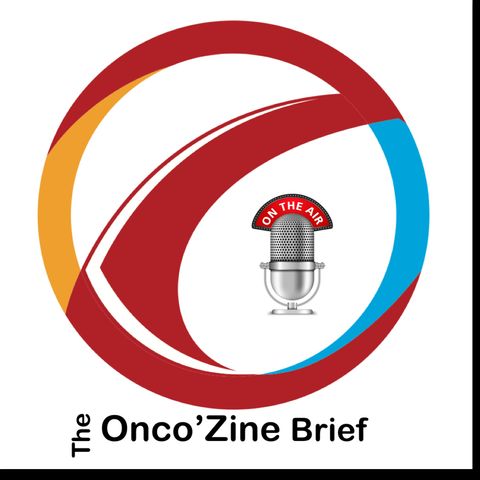The Burden of Chemotherapy-induced Myelosuppression

Download and listen anywhere
Download your favorite episodes and enjoy them, wherever you are! Sign up or log in now to access offline listening.
Description
In this episode of The Onco’Zine Brief Peter Hofland Ph.D., talks with Raj Malik M.D. and Robert Epstein M.D. Malik is Chief Medical Officer and Senior Vice President, R&D, at...
show moreMalik is Chief Medical Officer and Senior Vice President, R&D, at G1 Therapeutics. He leads the company’s clinical development, medical affairs, regulatory affairs, biometrics, translational medicine and preclinical teams. Epstein is an epidemiologist with extensive expertise in pharmaco-economics and health outcomes research. He served in academia and public health prior to joining the private sector and is currently the Chief Executive Officer and co-Founder of Epstein Health, providing strategic consultancy services to life sciences companies
Hofland and his guests talk about the burden of Chemotherapy-induced Myelosuppression (CIM), which is also referred to as Bone Marrow Depression. [1]
Chemotherapy-induced myelosuppression is a common side effect of chemotherapy. It generally ranges from mild to severe. Severe cases of myelosuppression, referred to as myeloablation, can be fatal.
As a result, the side effects of chemotherapy-induced myelosuppression remain a major source of concern for both patients and health care providers. And the consequences include anemia, thrombocytopenia, and neutropenia, all of which can cause severe complications, and limit the ability of patients to receive chemotherapy on time and at standard-of-care doses. [1]
Chemotherapy-induced myelosuppression is one of the most common dose-limiting complications of cancer treatment and is associated with a range of symptoms that can significantly impact patients’ health related quality of life.
Despite the current availability and use of various supportive care interventions, chemotherapy-induced myelosuppression places a substantial burden on patients with advanced solid tumors, impacting many aspects of their daily lives
Breakthrough Therapy
In the program today Hofland and his guests also talk about G1 Therapeutics first-in-class FDA-designated "Breakthrough Therapy" designed to improve outcomes for people with cancer who are treated with chemotherapy and we talk about myelopreservation which may reduce chemotherapy-related toxicity, making chemotherapy safer and more tolerable, and also reduce the need for rescue interventions that address the effects of myelosuppression, such as growth factors or blood and platelet transfusions.
Data from a study published earlier this year in advances in therapy highlights that despite the various methods used to address chemotherapy-induced myelosuppression, and the patient-focused approach of oncologists, the real-world impact of chemotherapy-induced myelosuppression on patients is substantial.
Based on the results of the study, the authors conclude that improving communication between patients and health care providers may help improve patients’ understanding of chemotherapy-induced myelosuppression and foster shared decision-making in terms of treatment.
For more information about chemotherapy-induced myelosuppression and GI Therapeutics visit the company’s web site at https://www.g1therapeutics.com/
About The Onco'Zine Brief
The Onco'Zine Brief is distributed in the United States via PRX (Public Radio Exchange). In the United Kingdom and Europe, the program is distributed via UK Health Radio (UKHR). And the program can be downloaded via most podcasts and streaming media services, including iTunes, Spotify, TuneIn, and iHeart Radio.
For more information about The Onco'Zine Brief or how to sponsor or support this public radio broadcast and podcast, visit: https://www.patreon.com/theoncozinebrief
For more information about cancer and cancer treatments, visit our online journal Onco'Zine at www.oncozine.com
To sign up for The Onco'Zine Newsletter (open for residents of the United States only), text the word CANCER to 66866.
References
[1] Epstein, R.S., Aapro, M.S., Basu Roy, U.K. et al. Patient Burden and Real-World Management of Chemotherapy-Induced Myelosuppression: Results from an Online Survey of Patients with Solid Tumors. Adv Ther 37, 3606–3618 (2020). https://doi.org/10.1007/s12325-020-01419-6
Information
| Author | Peter Hofland |
| Organization | Peter Hofland |
| Website | - |
| Tags |
Copyright 2024 - Spreaker Inc. an iHeartMedia Company
